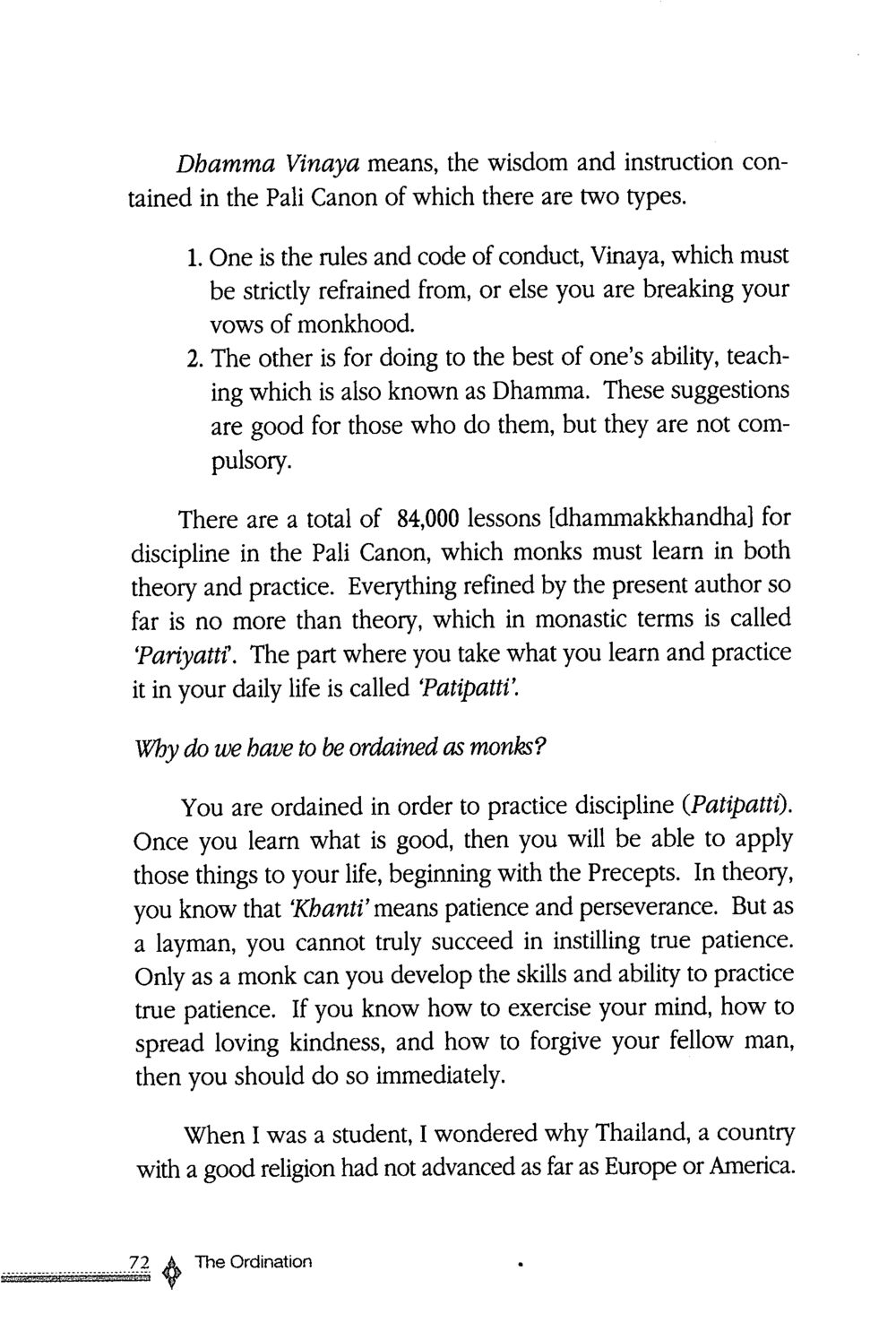Dhamma Vinaya: Understanding the Wisdom of the Pali Canon : หน้า 73/105
The ordination : หน้า 73/105 Explore the teachings of Dhamma Vinaya, covering Vinaya rules for monks and the concept of Dhamma in the Pali Canon.
1 ครั้ง

สรุปเนื้อหา
Dhamma Vinaya encompasses the wisdom of the Pali Canon, highlighting two types: Vinaya, which entails strict rules of conduct for monks, and Dhamma, teaching beneficial practices that are not compulsory. The Pali Canon contains 84,000 lessons in discipline that monks must learn theoretically (Pariyatti) and practically (Patipatti). Ordination as a monk allows individuals to truly practice patience and spread kindness, skills that are vital for personal development. The author reflects on the perceived stagnation of Thailand compared to Western countries despite its rich religious background. For more insights, visit dmc.tv.
หัวข้อประเด็น
-Dhamma Vinaya
-Vinaya rules
-Dhamma teachings
-Pali Canon
-Ordination of monks
-Practice of patience
-Comparison of cultural advancement









































































































